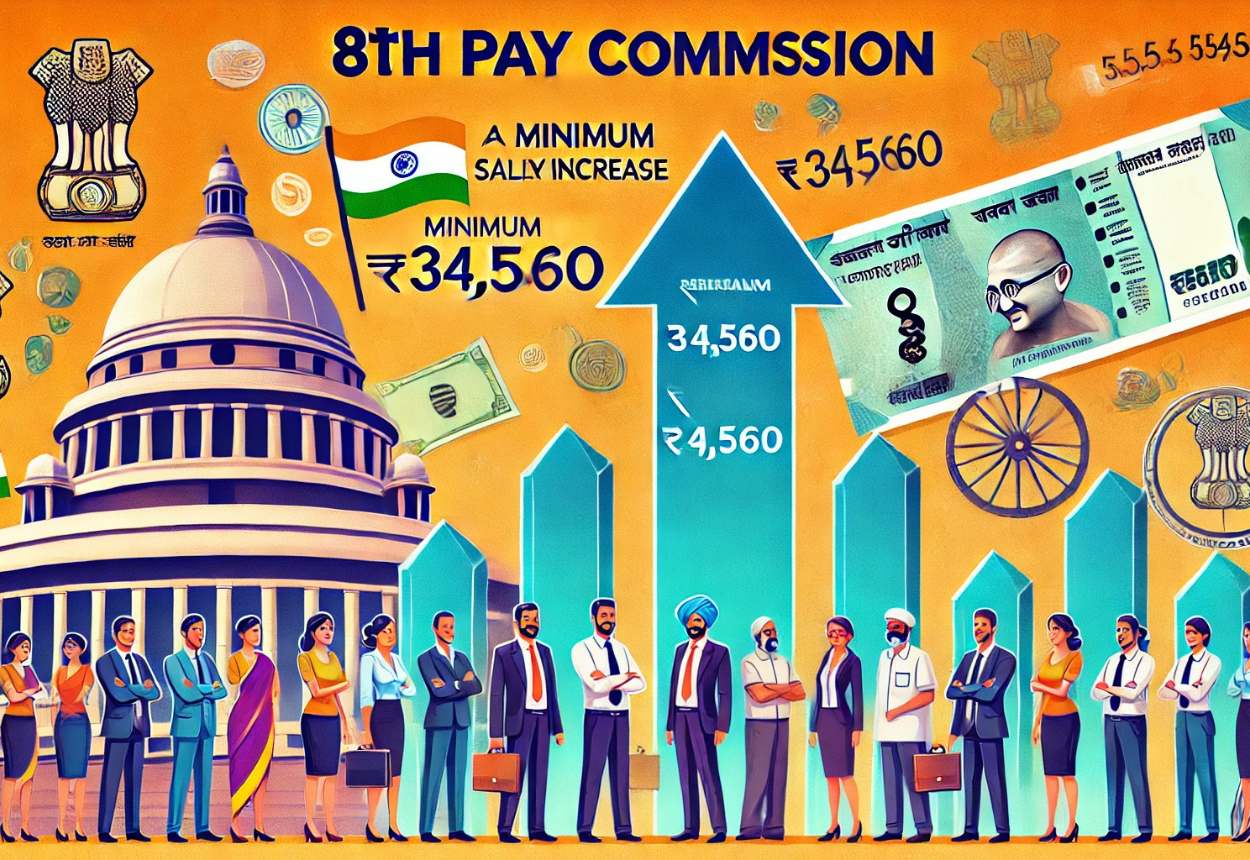The 8th Pay Commission, expected to be announced around 2025, is the next anticipated framework designed to revise the pay, allowances, and benefits of central government employees and pensioners in India. Following the tenure of the 7th Pay Commission that began in 2016, this upcoming revision aims to tackle issues related to inflation, wage parity, and economic shifts, directly impacting millions of government employees and pensioners.
Key Updates on the 8th Pay Commission
- Expected Timeline: The 8th Pay Commission is likely to be formed and discussed around 2024-25, with its recommendations possibly becoming effective by 2026. Discussions are already underway among government bodies and employee unions to push for its early formation to meet the demands of a dynamic economic landscape.
- Salary Hike Projections: A significant hike in salaries is expected. The basic minimum salary for government employees may see a rise from ₹18,000 in 7th pay commission to approximately ₹34,560, depending on the proposed fitment factor adjustments. Similarly, pensions for retirees could increase, with minimum pensions potentially being raised to ₹17,280.
- Revised Fitment Factor: The fitment factor, which determines the basic salary multiplier, is a crucial element under discussion. It may see an increase beyond the 2.57 factor used in the 7th Pay Commission, potentially going up to a 3.68 factor to better address inflation and the cost of livingPaytm.
Potential Benefits of the 8th Pay Commission
- Salary and Pension Increase: Central government employees could see their basic pay rise by 20% to 35%, significantly increasing take-home pay. This rise reflects the government’s commitment to align pay scales with current economic realities.
- Adjustments to Allowances: Expect revisions to key allowances such as the house rent allowance (HRA) and travel allowances, making them more in line with current costs of living.
- Dearness Allowance (DA): The DA, which was recently increased to 53%, will continue to be a crucial part of the salary package, adjusted periodically to counteract inflationPaytmFinancial Express.
Expected Impact of the 8th Pay Commission
- Economic Stimulus: With increased disposable income for millions of employees and retirees, there could be a positive impact on consumer spending and the broader Indian economy.
- Inflation Adjustments: The revision will help employees cope with inflationary pressures, improving their purchasing power and financial stability.
- Pension Security: For retirees, the enhanced pension structure will offer greater financial security in their post-service years.
What to Watch For
- Union Budget Announcements: It is anticipated that any concrete announcements regarding the 8th Pay Commission will be made during major financial sessions like the Union Budget.
- Employee Unions’ Demands: Central employee unions are advocating for more robust salary revisions, fitment factors, and enhanced allowances to mitigate current economic challenges.
Conclusion
The 8th Pay Commission’s recommendations, if implemented, promise to improve the financial conditions of central government employees and pensioners significantly. As discussions progress, staying informed about these developments will be essential for those affected. The changes not only reflect salary adjustments but also broader economic strategies by the government to enhance overall financial well-being in response to changing economic conditions.


